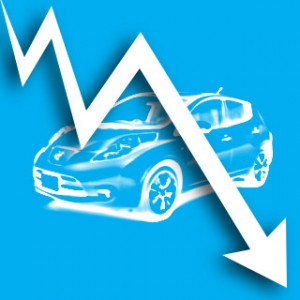According to newly published DVLA statistics, plug-in vehicles are failing to create a large dent in the market, with most purchasers opting for traditional internal combustion engines rather than taking up the government’s grants available for helping to purchase a plug-in car.
Plug-in car sales have grown by 14% in the first half of 2013, which may seem like a decent figure – and it is – but the overall new car market has risen by 17% meaning plug-in vehicles are trailing behind.
Plug-in grant eligible van sales fell by 27% with less than 120 vans registered in the first half of 2013, in comparison to over 160 registered last year, in the second half of 2012.
BVRLA (British Vehicle Rental and Leasing Association) Chief Executive, Gerry Keaney, said,
“These figures show that the current strategy for driving uptake of ultra-low emission vehicles is not working.
The fleet market buys more than half of all new vehicles registered each year and operates the greenest cars and vans on UK roads. As bulk purchasers, fleet operators could create a huge surge in demand for plug-in vehicles if they were given the right package of incentives. Unfortunately, the current tax regime actually encourages many fleets not to run plug-in vehicles.
The government’s Office for Low Emission Vehicles (OLEV) recently launched its new strategy and announced that it would look to develop a ‘strong, clear and lasting’ set of tax incentives. This work cannot happen soon enough.”
The BVRLA has consistently campaigned for plug-in-grant vehicle users to be offered longer-term, in-use incentives, for example a ten-year road tax exemption, free parking and financial support when installing charging points at work premises.
Meanwhile, in America, hybrid vehicle sales are on the up – with a 23.9% increase over 2012 (the overall market grew by 9.6%) and Nissan have added their all electric Leaf to their certified pre-owned vehicles program.
With figures on the up – no matter which way you read them – plug-in vehicles are increasing in prevalence and are certainly capturing the buying public’s imagination. Though it is true their sales did not increase at the same rate as overall car sales, this is likely to be due to the current range anxieties and relatively high purchase prices still plaguing electric vehicles.
With larger markets such as the US embracing hybrids and Volkswagens’ top dog suggesting that hybrid’s have the most market potential currently – but that they will persevere with aiming to be the world leader in EV’s, it seems likely the above DVLA figures are set to change for the better as market competition from the likes of VW, Renault, Ford and even Tesla push prices for EVs down, making them more accessible to purchasers and fleets alike. It’s worth noting that in Germany there are no plug-in governement grants available, yet Volkswagen and Daimler have begun pushing electric vehicles in a much more intensive way in the last couple of weeks.
What with the Frankfurt Motor Show being centred around electric and hybrid vehicles in a major way by most manufacturers, and if not a plug-in or hybrid, low CO2 models were the order of the week, it seems likely there will be a turn around of statistics by next year.
For more information and access to the DVLA data, click here.

Source; DVLA & BVRLA
